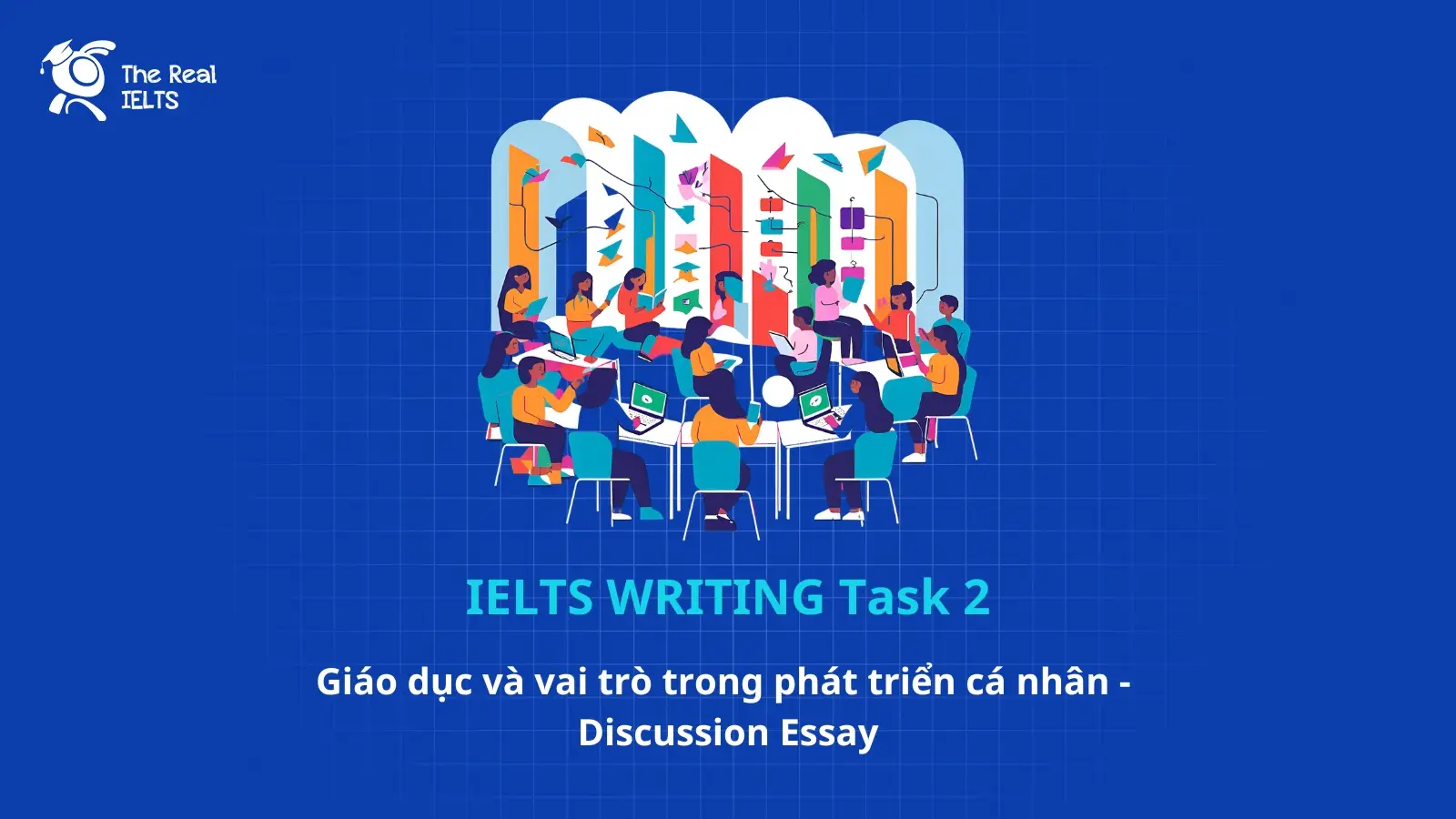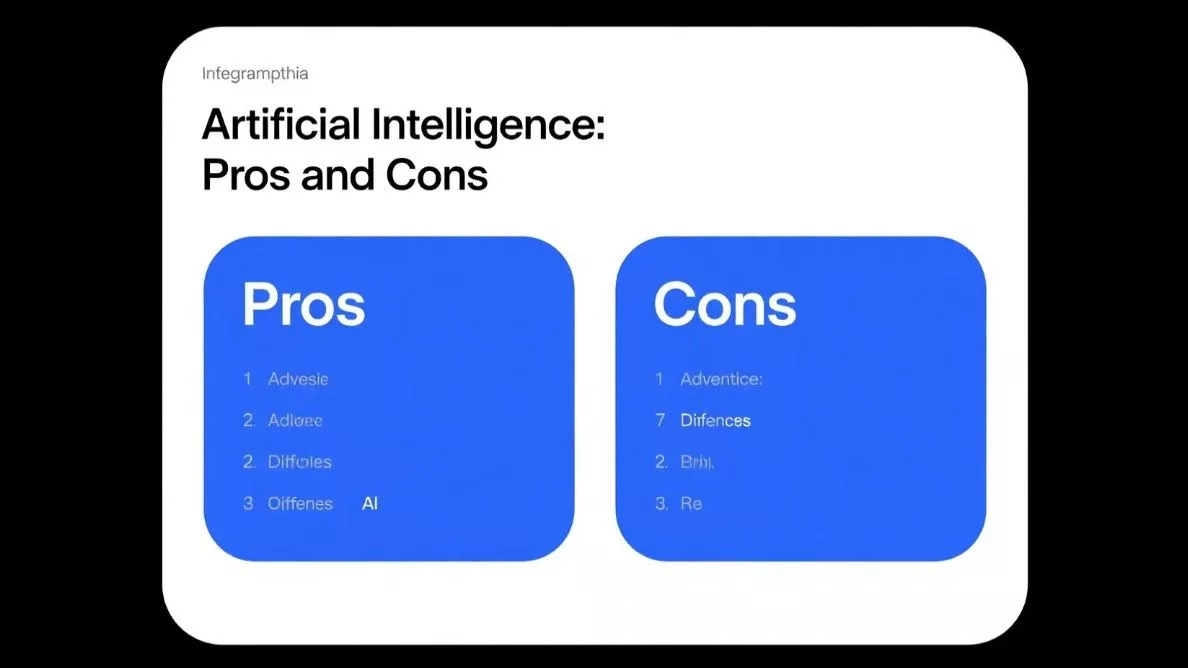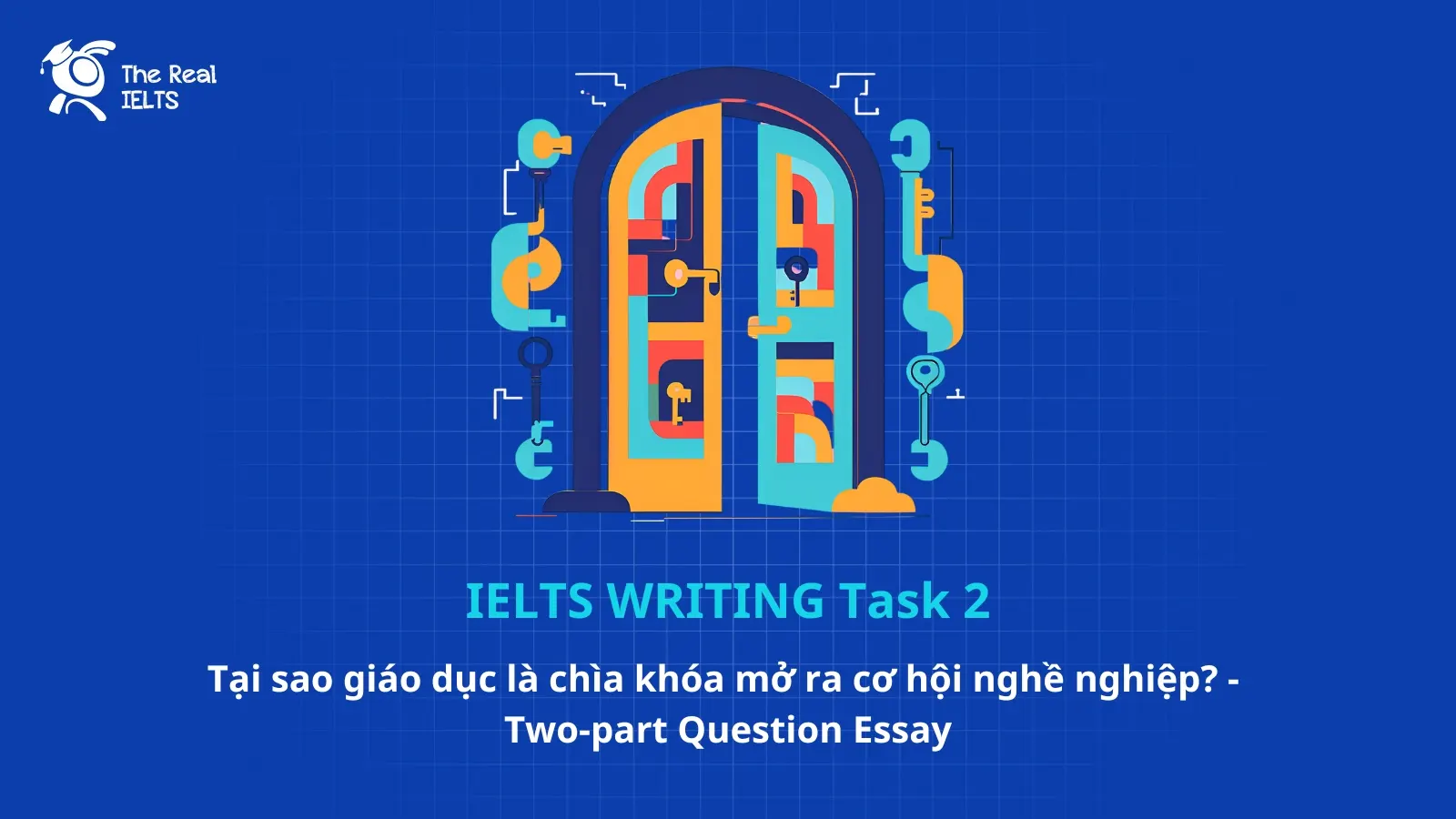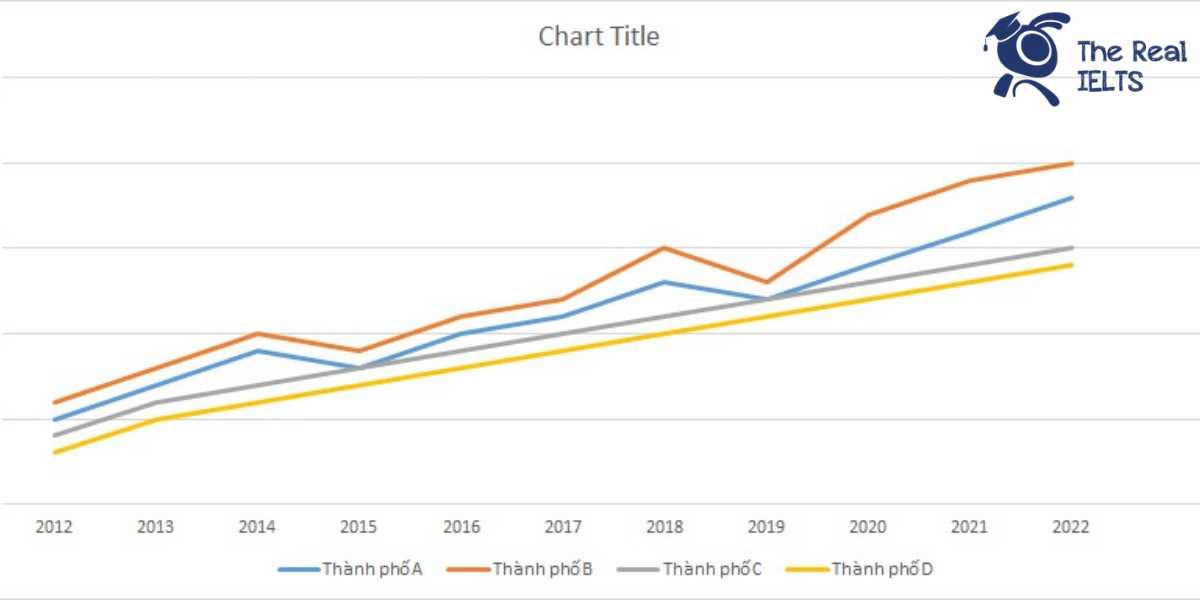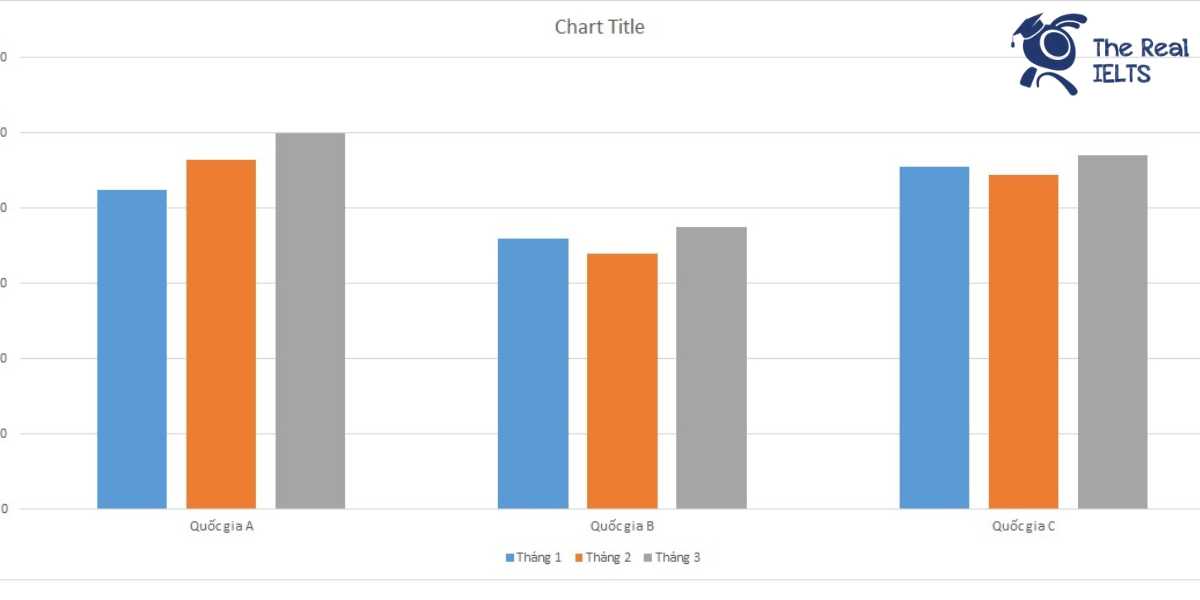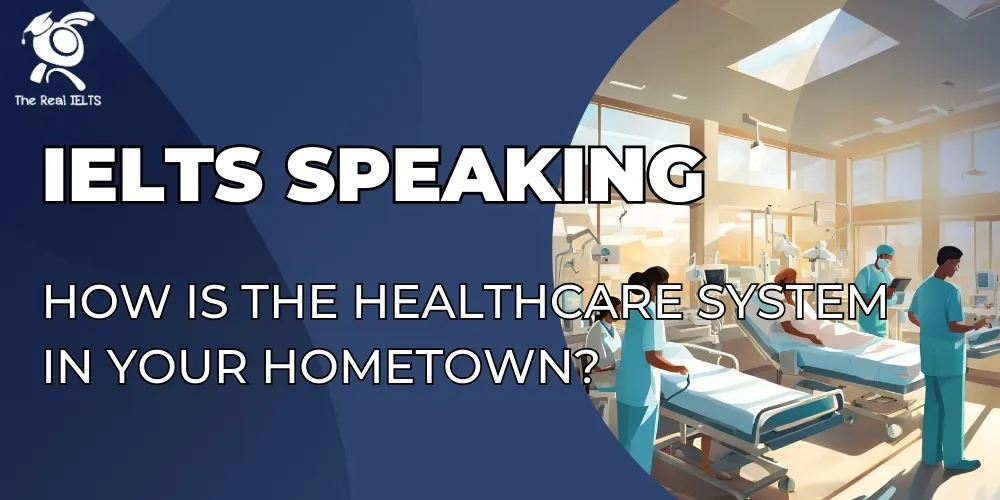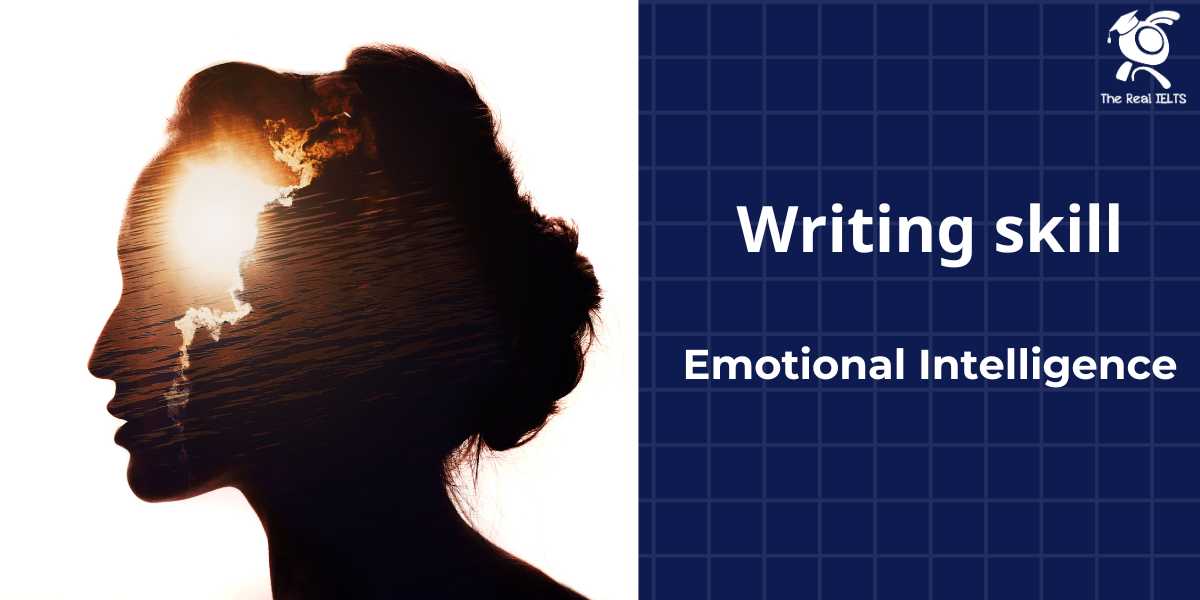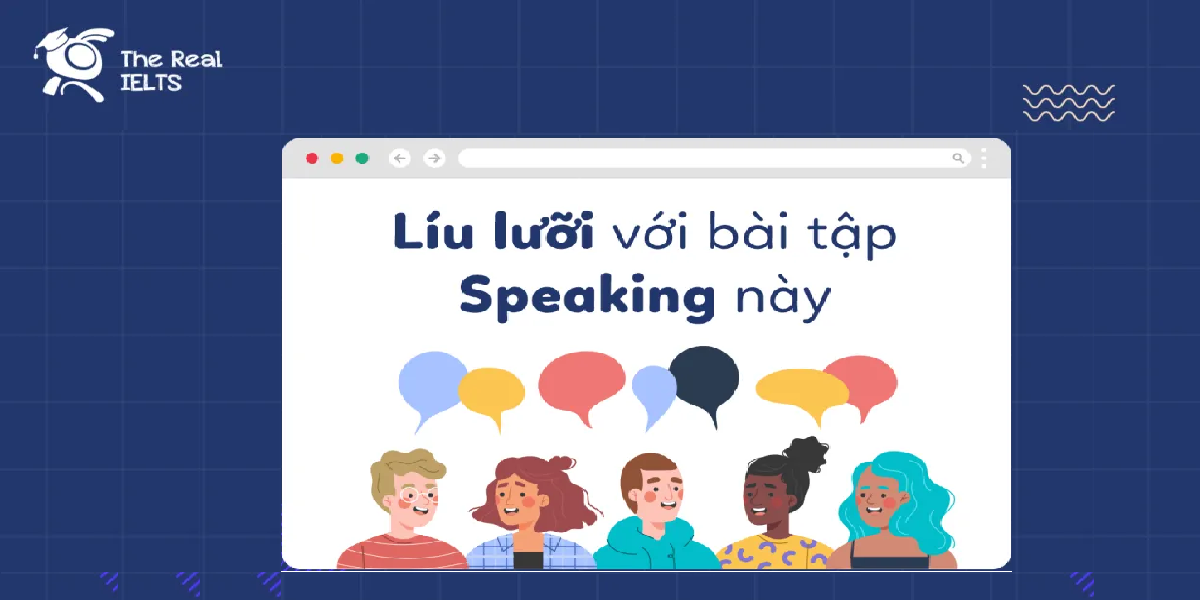IELTS Writing Task 2 thường yêu cầu thí sinh thảo luận về các quan điểm khác nhau liên quan đến một vấn đề cụ thể. Về vai trò của giáo dục trong sự phát triển cá nhân, một số người tin rằng giáo dục là yếu tố quyết định, trong khi những người khác cho rằng kinh nghiệm thực tế quan trọng hơn.
Đề bài IELTS Writing Task 2: Giáo dục và vai trò trong phát triển cá nhân – Discussion Essay
Some people believe that education is the key to personal growth, while others think that life experiences and social interactions play a bigger role. Discuss both views and give your own opinion.
Câu trả lời 1
People have different opinions on what contributes most to personal growth. Some argue that education is the key factor, as it provides individuals with knowledge and essential skills. Others believe that life experiences and social interactions have a greater impact on shaping a person’s character and abilities. This essay will discuss both perspectives before presenting a final viewpoint.
On the one hand, education plays a crucial role in personal development by equipping individuals with intellectual and practical skills. Formal schooling fosters critical thinking, problem-solving abilities, and specialized knowledge, all of which are necessary for career success and informed decision-making. Additionally, education broadens a person’s worldview by exposing them to different cultures, historical events, and scientific advancements. For example, highly educated individuals often have a better understanding of global issues and are more adaptable in professional environments.
On the other hand, life experiences and social interactions also significantly shape personal growth. Real-world challenges, such as overcoming failure or navigating personal relationships, develop resilience, emotional intelligence, and adaptability—traits that formal education alone cannot instill. Furthermore, interacting with diverse individuals enhances communication skills and cultural awareness, both of which are crucial for personal and professional success. Many self-made entrepreneurs and artists, for instance, attribute their achievements to hands-on experiences rather than academic qualifications.
In my opinion, both education and life experiences contribute to personal growth, but neither should be considered the sole determining factor. While education provides a strong foundation, real-life experiences and social interactions allow individuals to apply their knowledge and develop practical wisdom. Therefore, a balanced approach that combines formal learning with experiential learning is the most effective way to achieve holistic personal development.
Câu trả lời 2
The debate surrounding the primary drivers of personal growth often centers around the relative importance of formal education versus life experiences and social interactions. Both sides present compelling arguments, and the reality likely involves a complex interplay of these factors.
The Case for Education as Key:
Proponents of education’s primacy argue that it provides the foundational knowledge, critical thinking skills, and intellectual tools necessary for navigating the complexities of life. Formal education exposes individuals to diverse perspectives, fostering open-mindedness and a deeper understanding of the world. It equips them with specific skills relevant to their chosen career paths, increasing their earning potential and opening doors to opportunities. Furthermore, the structured environment of education encourages discipline, time management, and a commitment to lifelong learning – all valuable traits for personal growth.
The Case for Life Experiences and Social Interactions:
Conversely, many believe that life experiences and social interactions are the true crucibles of personal growth. They argue that navigating real-world challenges, building relationships, and experiencing both successes and failures fosters resilience, adaptability, and emotional intelligence in ways that formal education cannot replicate. Traveling, working, volunteering, and engaging in meaningful relationships provide invaluable lessons about oneself and others, shaping values, beliefs, and perspectives. These experiences often lead to greater self-awareness, empathy, and a deeper understanding of the human condition.
My Opinion:
While both education and life experiences contribute significantly to personal growth, I believe they act synergistically, with each enhancing the other. Education provides the framework for understanding and interpreting experiences, while life experiences provide the context and motivation for learning.
A solid educational foundation equips individuals with the critical thinking skills to analyze and learn from their experiences. For example, someone with a background in psychology might be better equipped to understand and manage their emotions during a challenging life event. Conversely, life experiences can fuel a desire for further learning and deepen the impact of education. A student studying international relations might gain a more nuanced perspective after traveling abroad and interacting with different cultures.
Ultimately, personal growth is a lifelong journey shaped by a continuous interplay between formal education, life experiences, and social interactions. While education provides the initial toolkit, it’s the application of that knowledge in real-world contexts and the lessons learned from relationships and experiences that truly shape an individual’s character and drive personal development. Therefore, prioritizing both formal education and a rich tapestry of life experiences is essential for maximizing one’s potential for growth.
Câu trả lời 3
People have different views on what contributes most to personal growth. Some argue that education is the key, as it provides knowledge, skills, and opportunities for self-improvement. Others believe that real-life experiences and social interactions shape individuals more significantly. This essay will discuss both perspectives before presenting my own opinion.
The Importance of Education in Personal Growth
Education is often seen as the foundation of personal and intellectual development. Formal education equips individuals with essential knowledge, critical thinking abilities, and problem-solving skills. It also provides qualifications that open doors to better career opportunities, leading to financial stability and personal fulfillment. Furthermore, education teaches discipline, responsibility, and moral values, shaping a person’s character and worldview.
For example, studying different subjects such as history, literature, and science helps individuals understand the world, develop analytical skills, and become informed citizens. Additionally, schools and universities provide structured learning environments that encourage curiosity, creativity, and collaboration, all of which contribute to personal growth.
The Role of Life Experiences and Social Interactions
On the other hand, some believe that real-life experiences and social interactions play a more significant role in shaping a person. Life presents challenges, opportunities, and unexpected situations that require adaptability, resilience, and emotional intelligence. For instance, overcoming failures, traveling, or working in different environments can teach valuable lessons that formal education may not cover.
Social interactions, including relationships with family, friends, and mentors, also shape a person’s values, beliefs, and behaviors. Engaging with diverse groups of people exposes individuals to different perspectives, helping them develop empathy, communication skills, and cultural awareness. Many successful people, such as entrepreneurs and artists, have achieved personal growth through hands-on experiences rather than traditional education.
My Opinion
While both education and life experiences contribute to personal growth, I believe a balance between the two is ideal. Education provides a strong foundation, but real-life experiences and social interactions add depth and practicality to personal development. A person who is highly educated but lacks real-world experience may struggle to adapt to challenges, while someone with rich experiences but no formal education may lack essential knowledge and skills.
In conclusion, education and life experiences complement each other in shaping an individual’s personal growth. Education builds intellectual and professional abilities, while life experiences teach resilience, adaptability, and emotional intelligence. A well-rounded person benefits from both, making them more prepared for the complexities of life.
Câu trả lời 4
Personal growth is a lifelong process influenced by various factors. While some believe that education is the key to personal development, others argue that life experiences and social interactions play a more significant role. This essay will discuss both perspectives before presenting my own opinion.
The Role of Education in Personal Growth
Supporters of formal education argue that it provides individuals with the knowledge, skills, and critical thinking abilities necessary for personal and professional success. Schools and universities offer structured learning, which helps people develop intellectual capabilities, problem-solving skills, and discipline. Furthermore, education enhances career opportunities by equipping individuals with qualifications that lead to financial stability and independence.
Additionally, education helps shape a person’s values and ethics. Subjects like history, philosophy, and social sciences encourage individuals to develop a broader understanding of the world, fostering tolerance and empathy. Moreover, academic environments help students develop confidence and communication skills, which are essential for personal and professional growth.
The Importance of Life Experiences and Social Interactions
On the other hand, some believe that personal growth is largely influenced by real-life experiences, relationships, and challenges. Unlike formal education, life experiences provide practical wisdom, helping individuals adapt to different situations, make informed decisions, and develop resilience.
Social interactions also play a crucial role in personal development. Engaging with diverse people exposes individuals to different perspectives, improving their emotional intelligence, communication, and leadership skills. Many life lessons—such as dealing with failure, building relationships, and managing emotions—cannot be learned in a classroom but are acquired through real-world experiences.
My Opinion
While I acknowledge the importance of education in providing knowledge and skills, I believe that life experiences and social interactions are equally, if not more, important in personal development. Education lays the foundation, but real growth happens through practical application, challenges, and interpersonal relationships. A well-rounded personal development approach should combine formal learning with real-world experiences to achieve holistic growth.
Câu trả lời 5
The debate surrounding the primary drivers of personal growth often centers around the relative importance of formal education versus life experiences and social interactions. Both sides present compelling arguments, and a nuanced understanding requires considering the interplay of these influences.
The Case for Education as Key to Personal Growth:
Proponents of this view argue that education provides a structured framework for acquiring knowledge, developing critical thinking skills, and expanding intellectual horizons. Formal learning cultivates a deeper understanding of the world, fostering intellectual curiosity and a lifelong love of learning. Education also equips individuals with the necessary skills and qualifications for career advancement, leading to greater economic stability and a wider range of opportunities. Furthermore, educational institutions often provide a diverse environment where individuals can interact with people from different backgrounds, fostering social and emotional development.
The Case for Life Experiences and Social Interactions:
Those who emphasize the importance of life experiences and social interactions believe that true personal growth stems from navigating the complexities of real-world situations. These experiences, whether positive or negative, shape character, build resilience, and offer invaluable life lessons that cannot be replicated in a classroom setting. Interacting with others, building relationships, and experiencing different cultures broadens perspectives and fosters empathy. Furthermore, facing challenges, overcoming obstacles, and learning from mistakes are crucial aspects of personal development that often occur outside the confines of formal education.
My Opinion:
While both education and life experiences contribute significantly to personal growth, I believe they are interconnected and mutually reinforcing rather than mutually exclusive. Education provides the foundational tools and knowledge, while life experiences and social interactions offer the practical application and context for that knowledge. Formal education can enhance our ability to learn from experiences, while real-world encounters provide the motivation and relevance for continued learning.
For example, a degree in psychology may provide theoretical knowledge about human behavior, but working with diverse individuals in a social work setting will provide invaluable practical experience and insights that deepen understanding and enhance professional skills. Similarly, traveling to a new country can broaden perspectives and foster cultural understanding in ways that classroom learning alone cannot achieve.
Ultimately, personal growth is a continuous process that involves a complex interplay of formal education, life experiences, and social interactions. Recognizing the value of each and actively seeking opportunities for both structured learning and real-world engagement is crucial for maximizing personal development throughout life. A balanced approach that integrates these elements will lead to a richer, more meaningful, and fulfilling journey of personal growth.
Câu trả lời 6
People have different perspectives on what contributes most to personal development. Some argue that education is the key factor, as it provides knowledge, critical thinking skills, and career opportunities. Others believe that life experiences and social interactions shape an individual more significantly by fostering adaptability, resilience, and emotional intelligence. This essay will discuss both views before presenting my own opinion.
On one hand, education is considered essential for personal growth because it equips individuals with intellectual and practical skills. Schools and universities provide structured learning environments where students develop problem-solving abilities, discipline, and analytical thinking. Moreover, education offers qualifications that improve job prospects and financial stability, which contribute to overall personal development. Additionally, formal learning exposes individuals to diverse perspectives, fostering open-mindedness and cultural awareness.
On the other hand, life experiences and social interactions play a crucial role in shaping an individual’s character and emotional intelligence. Facing challenges, making independent decisions, and engaging with different people help individuals develop resilience and adaptability. Social interactions with family, friends, and colleagues teach communication, empathy, and conflict resolution—skills that are often not taught in a classroom. Many successful people attribute their growth to real-world experiences rather than formal education alone.
In my opinion, both education and life experiences contribute to personal development, but real-life experiences have a greater impact. While education provides a foundation, practical learning through experiences allows individuals to apply knowledge in meaningful ways. A combination of formal education and real-world experiences leads to well-rounded personal growth.
Câu trả lời 7
Personal growth is influenced by multiple factors, with education and life experiences often being considered the most significant. While some argue that education provides the necessary knowledge and skills for self-improvement, others believe that real-world experiences and social interactions shape an individual more profoundly. This essay will examine both perspectives before presenting my own view.
On one hand, formal education is widely regarded as the foundation of personal development. Schools and universities equip individuals with critical thinking skills, problem-solving abilities, and specialized knowledge, all of which contribute to intellectual and professional growth. Additionally, education fosters discipline, perseverance, and a structured approach to learning, which can be applied in various aspects of life. For example, individuals who pursue higher education often have better career prospects and are more confident in decision-making. Thus, education is seen as a structured and reliable pathway to personal advancement.
On the other hand, many argue that life experiences and social interactions have a more profound impact on personal growth. Engaging with diverse people, facing challenges, and adapting to different situations help individuals develop resilience, emotional intelligence, and interpersonal skills. Unlike formal education, which primarily focuses on academic knowledge, real-world experiences teach practical lessons that are essential for personal and professional success. For instance, entrepreneurs who have built successful businesses often attribute their growth to hands-on learning rather than formal schooling. Similarly, traveling, volunteering, and overcoming hardships contribute significantly to shaping one’s personality and worldview.
In my opinion, both education and life experiences are important, but real-world interactions play a more significant role in overall personal development. While education provides a foundation, it is through practical experiences that individuals truly learn how to navigate life’s complexities. Therefore, a balanced approach that integrates formal learning with real-world exposure is the best way to foster personal growth.
Câu trả lời 8
Personal growth is a multifaceted process influenced by various factors, including formal education, life experiences, and social interactions. While some argue that education is the primary driver of personal development, others believe that real-world experiences and relationships play a more significant role. This essay will discuss both perspectives before presenting my own view.
On one hand, education is often seen as the foundation of personal growth. Formal education equips individuals with essential knowledge and skills, fostering intellectual development and critical thinking. For instance, subjects like mathematics, science, and literature enhance analytical abilities and broaden perspectives. Furthermore, education provides individuals with opportunities for career advancement, leading to financial independence and self-confidence. The structured environment of schools and universities also instills discipline, time management, and effective communication skills, all of which contribute to personal development.
On the other hand, many believe that life experiences and social interactions play a more crucial role in shaping an individual’s personal growth. Real-life experiences, such as overcoming challenges, traveling, or participating in community activities, teach valuable lessons that cannot always be learned in a classroom. These experiences often foster resilience, adaptability, and problem-solving skills. Additionally, interacting with diverse groups of people helps individuals develop empathy, emotional intelligence, and interpersonal skills. For example, learning to navigate relationships, handle conflicts, and collaborate with others are essential aspects of personal growth that are primarily gained through social interactions.
In my opinion, both education and life experiences are integral to personal growth, and one cannot be considered more important than the other. Education provides a strong foundation of knowledge and cognitive skills, while life experiences and social interactions cultivate emotional intelligence and practical wisdom. A well-rounded individual benefits from the synergy of both formal learning and real-world exposure, leading to comprehensive personal development.
In conclusion, while education plays a significant role in intellectual and professional growth, life experiences and social interactions are equally important in shaping emotional and social skills. Therefore, a balanced combination of both is essential for holistic personal development.alongside these other factors offers a more accurate understanding of personal development.


